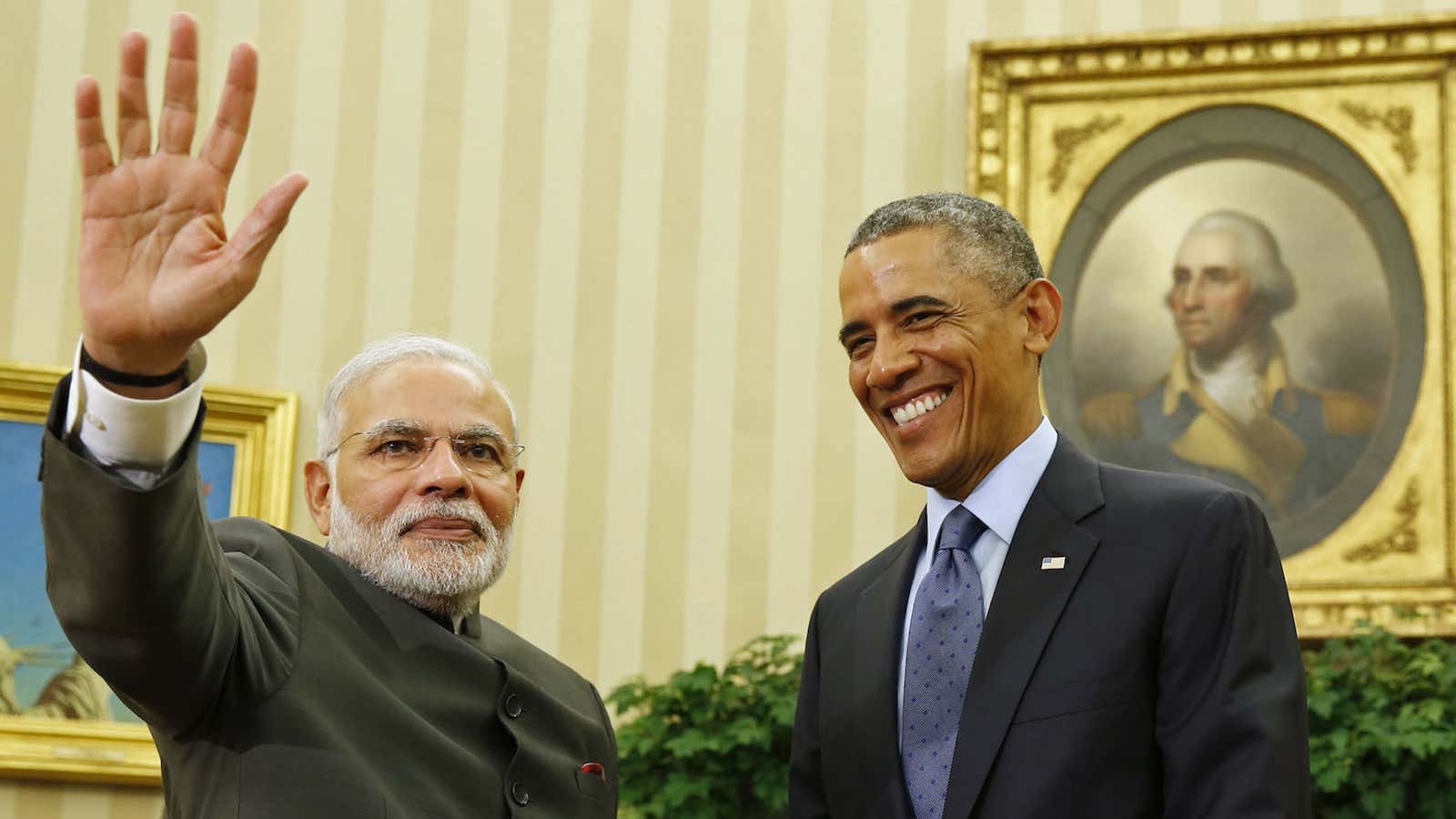For months, India has fought a lonely battle with the rest of the world on food security and agricultural trade, refusing to ratify a global trade facilitation deal that took the World Trade Organization (WTO) years to put together.
The deal aims to cut the cost of trade by 10% to 15% by streamlining customs procedures and others measures, which could translate into $400 billion to $1 trillion worth of benefits for the global economy.
Today, finally, the stalemate ended.
India and the US have reached an agreement, trade minister Nirmala Sithamaran declared in a series of jubilant tweets. The proposals will now be reviewed by the general council of the WTO.
The previous disagreements concerned food subsidies and public stockpiling.
New Delhi argued that food stockpiles were essential for supporting poor farmers and consumers, even though stockpiling and certain subsidies (including price support measures) are limited by the WTO.
In December 2013, WTO members in Bali, Indonesia agreed to shield food stockpiling programmes in developing countries such as India for the next four years, till a more long-lasting, legal solution was arrived at. India had insisted on a permanent solution before signing the deal.
But then, in July 2014, after the Narendra Modi government took over, India put its foot down and effectively blocked the Bali agreement.
“While the relevant WTO rules recognize food security concerns, their primary focus is to liberalise agricultural trade rather than to ensure food security. However, the fact is that some of these rules are proving to be a hindrance to food security efforts,” India’s commerce ministry said.
Now, according to the new bilateral agreement, these food welfare programmes in developing countries will not be challenged by the WTO until a permanent solution is found.
“The bilateral agreement makes clear that a mechanism under which WTO Members will not challenge such food security programs under WTO dispute settlement procedures will remain in place until a permanent solution regarding this issue has been agreed and adopted,” the Office of the US Trade Representative said in a statement.
“It also sets out elements for an intensified program of work and negotiations to arrive at such a permanent solution,” it added.




